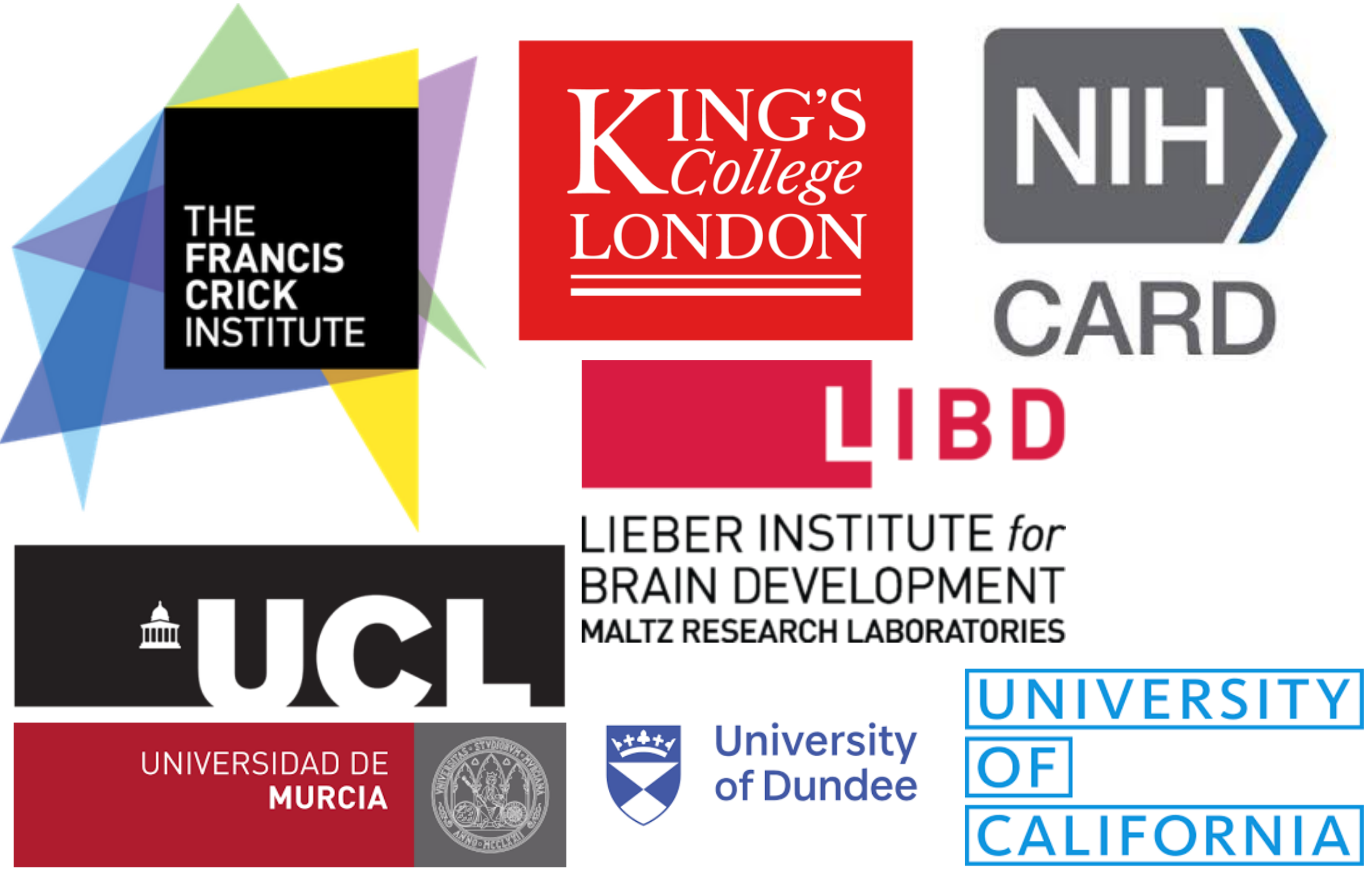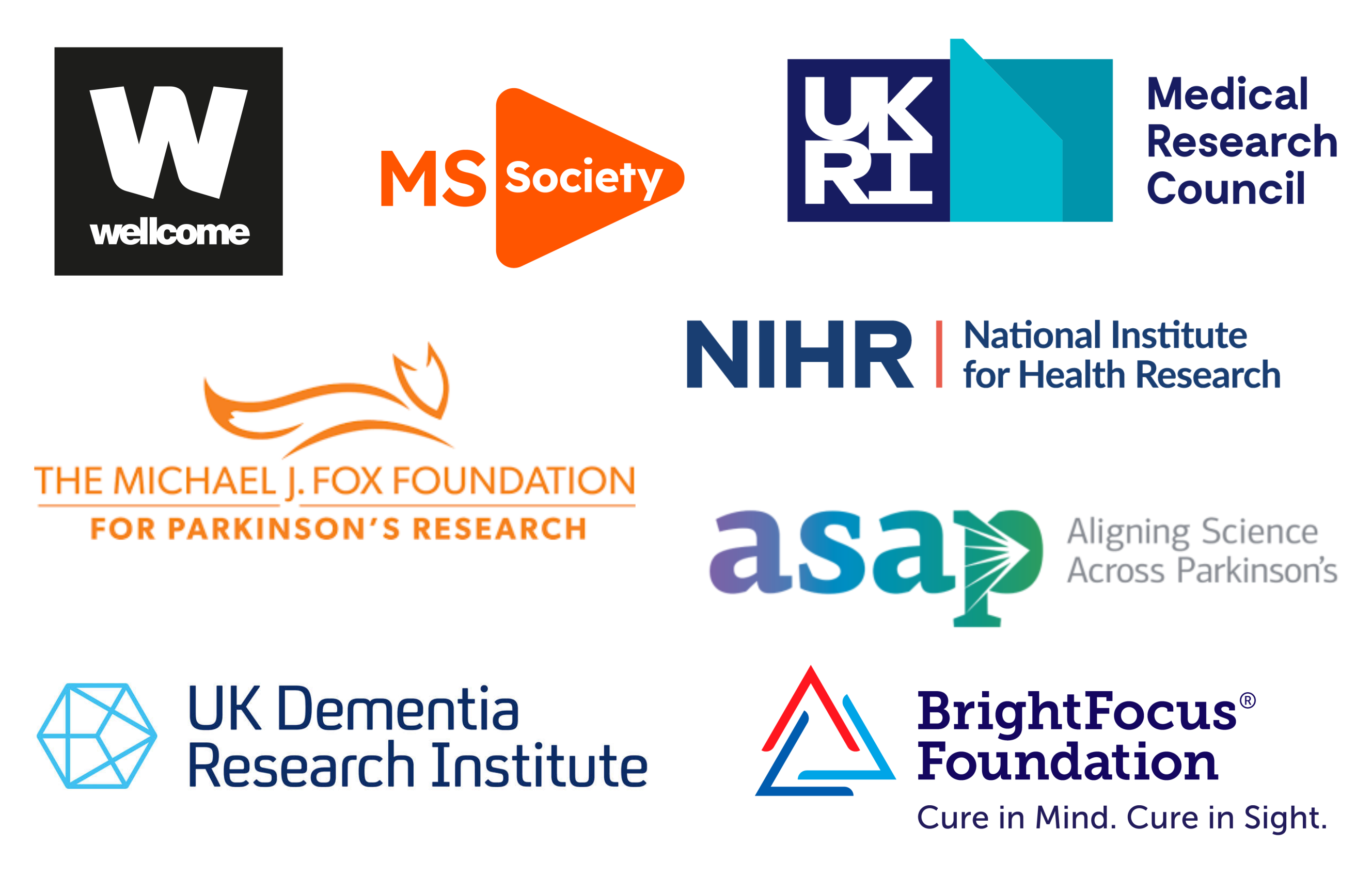Research projects
At the RytenLab, we are a multidisciplinary group of scientists with a strong focus on using human transcriptomic data to improve our understanding of neurodegeneration.
Currently, we have multiple ongoing projects that are summarised in the table below:
| Project | Technology | Disease | Lead person |
|---|---|---|---|
| Comparing cellular and molecular features of multiple sclerosis to Alzheimer's and Parkinson's disease. | Single-cell and spatial transcriptomics | Multiple sclerosis (MS) | Melissa Grant-Peters (mg2180@cam.ac.uk) |
| Use of longitudinal RNA-sequencing data to understand progression and post-transcriptional mechanisms in neurodegenerative diseases. | Longitudinal RNA-sequencing data | Parkinson's disease and hereditary ataxia | Zhongbo Chen (zhongbo.chen@ucl.ac.uk) |
| UK DRI Pilot Grant 2024: Investigating the extent and impact of splicing noise in Alzheimer's disease using genome-wide short- and long-read RNA-sequencing. | Bulk, single-nuclear and long-read RNA-sequencing data | Alzheimer's disease | Sonia Garcia-Ruiz (sg2173@cam.ac.uk) |
| Using long-read sequencing techniques to define the expression of novel transcripts of genes involved in neurological disease. | Long-read RNA-sequencing data | Parkinson's disease | Emil Gustavsson (e.gustavsson@ucl.ac.uk) |
| Use of long-read RNA-sequencing methods and analysis to explore gene expression during neurodevelopment. | Long-read RNA-sequencing data | White matter disorders and neurodevelopment | Kylie Montgomery (kylie.montgomery@ucl.ac.uk) |
| Understanding the changes to cellular architecture in the context of Parkinson's disease by using a combination of single cell and spatially resolved transcriptomic data. | Single-cell and spatial transcriptomics | Parkinson's disease | Melissa Grant-Peters (m.grant-peters@ucl.ac.uk) |
| Using long read technologies to identify the role of structural variants on gene expression and methylation within neurodegenerative diseases. | Long-read RNA-sequencing data | Parkinson's and Alzheimer's disease | Pilar Álvarez Jerez (pilar.jerez.22@ucl.ac.uk) |
If you are interested in knowing more about any of the projects listed above, please get in touch!
List of collaborators |
Funding bodies |
|---|---|
|
At the RytenLab, we firmly believe in the power of collaboration to enable research discovery and improve diagnosis of human disease. We have active collaborations stablished with multitude of research institutions across the globe: |
Our work wouldn´t be possible without the valuable support of the following funding bodies: |
 |
 |